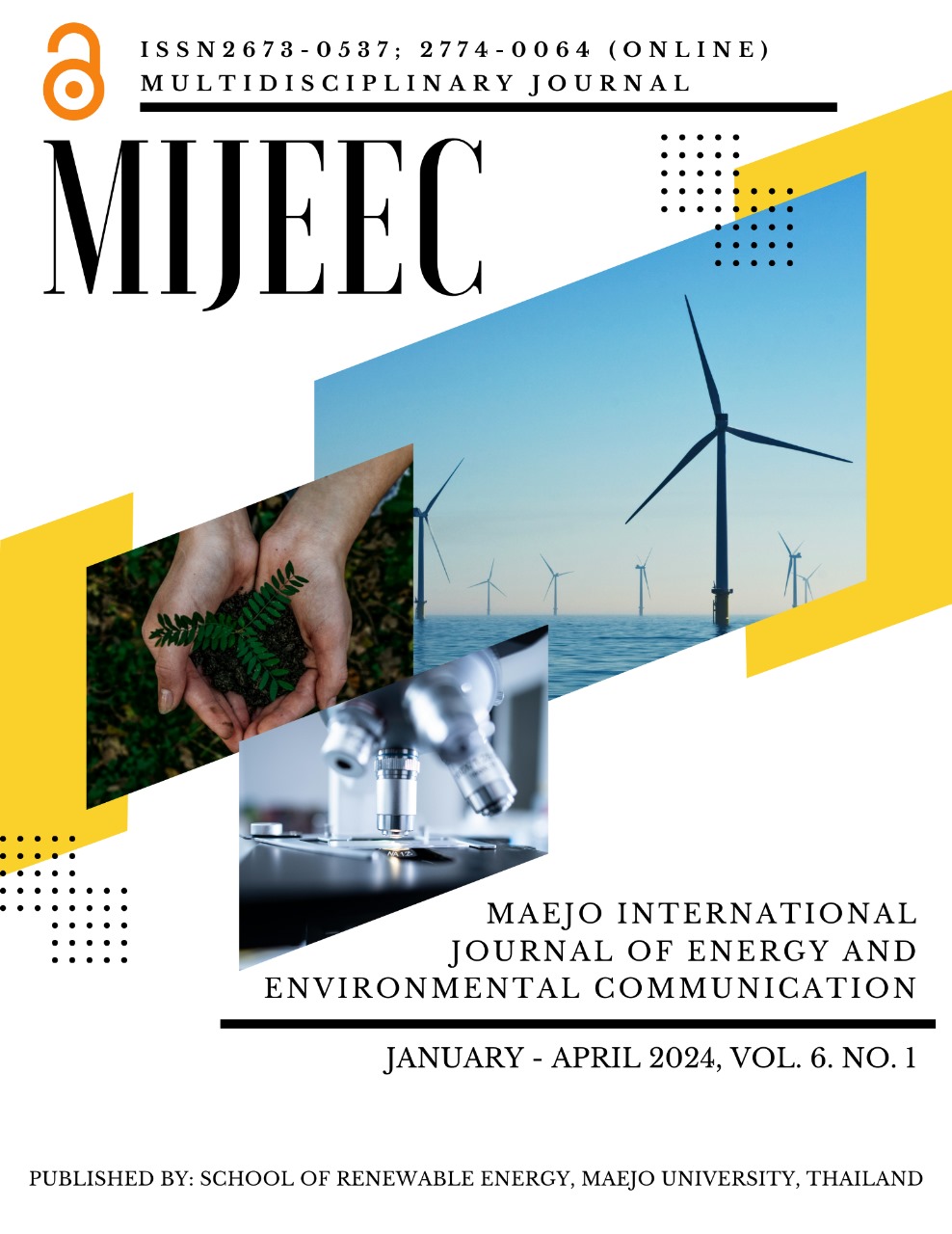Exploring sustainable sources for biodiesel production utilizing waste animal fats and aquatic weeds
Main Article Content
Abstract
Biodiesel is an alternative, sustainable, eco-friendly, and biodegradable fuel. It reduces dependence on fossil fuels that are depleting and causing health issues for humans and the environment. The present study explored the biodiesel production from waste animal fats (fish and chicken waste) and aquatic weeds (Eichhornia crassipes, Pistia stratiotes, and Lemna minor), their characterization, and emission monitoring. Transesterification was adopted to convert fatty acids (oil) into fatty acid methyl esters (biodiesel). The biodiesel was characterized by GCMS (gas chromatography-mass spectrometry) that exposed the highest percentage of fatty acids i.e. 51% of oleic acid in chicken waste, 35.7% of palmitic acid in fish waste, 14.6% of palmitoleic acid in E. crassipies, 61.7% of phthalic acid in L. minor and 10.9% of linoleic acid in P. stratiotes oil biodiesel. The results of physicochemical properties, including viscosity, density, acid value, and refractive index, revealed that all produced biodiesel samples were within the ASTM standard. The emission performance of biodiesel and petro-diesel blends showed a reduction of 23% - 26%, 60%-80%, 70-80%, and 25-50% in CO, NO, SO2, and smoke, respectively. The results of the present study depicted that the utilization of animal waste fats and aquatic weeds for biodiesel production are viable and environment-friendly sources to be adopted as an alternative fuel.
Article Details

This work is licensed under a Creative Commons Attribution-NonCommercial-NoDerivatives 4.0 International License.
Copyright © 2019 MIJEEC - Maejo International Journal of Energy and Environmental Communication, All rights reserved. This is an open-access article distributed under the terms of the Creative Commons Attribution-NonCommercial- Attribution 4.0 International (CC BY 4.0) License






